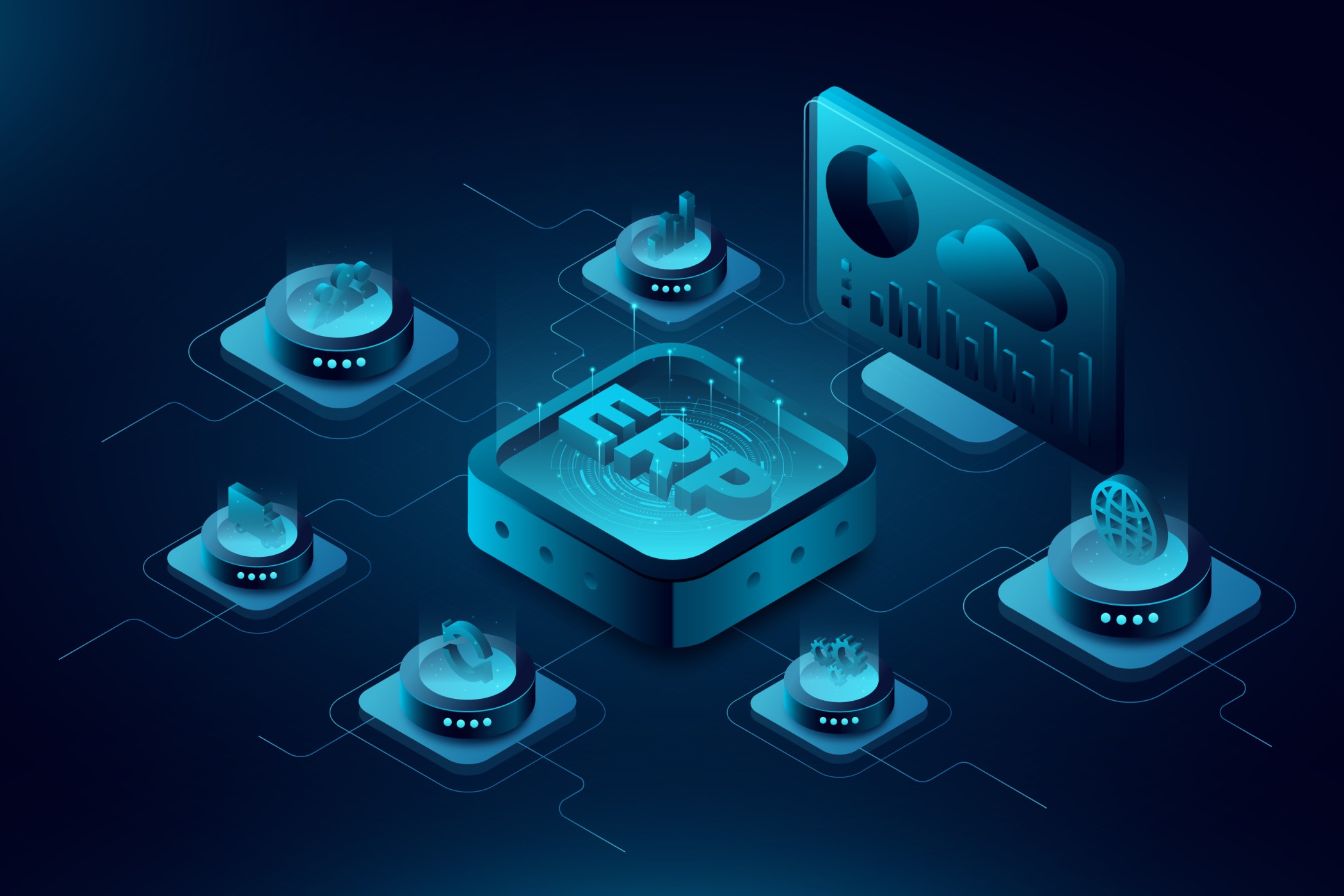Businesses these days are relying on technology to drive growth and achieve success. That is because in the business realm, efficient management of resources is essential. Two such important tools are enterprise resource planning and inventory management. This article is a comparative analysis between erp vs inventory management.
Both of these tools serve interconnected but separate functions in an organization. The main focus of this comparative blog is to understand how these two differ.
Scope
ERP and inventory management are known to have a wide range of scope for organizations. Let us find out how they differ in the arena of scope.
ERP
Enterprise resource planning is a comprehensive software solution that integrates and streamlines core business processes. These include finance, procurement, human resources, manufacturing, etc. ERP offers a centralized platform for data management.
One of the important features is that it facilitates real-time information across all departments in an organization. ERP provides a detailed view of an organization’s operations to ensure better decision-making and improvised resource allocation.
We can say that ERP offers a wider scope as it deals with the tasks of finances, operations, manufacturing, stocks, etc. For any organization looking for holistic software to cover various aspects, ERP is the one.
Inventory management
The name itself helps us understand that inventory management focuses only on maintaining and controlling inventory levels, i.e., stocks. Its scope revolves around optimization of inventory turnover, ensuring timely delivery, and minimizing stockouts.
The system tracks the movement of inventory, manages stock levels, plans for the material, and creates a report based on the inventory tracking. Thus, organizations that deal in materials like manufacturing or selling items should invest in an inventory management system.
Inventory management concentrates only on the stocks and material aspects that are generally termed inventory. So, if that is what you need as a business, it might be the right choice for you.
Complexity
Technology is supposed to ease out business tasks. We will now discuss the complexity difference between ERP and inventory management.
ERP
Complexity occurs when there is a lot on the plate. The same goes with ERP. The implementation of an ERP system often comes with a certain degree of complexity due to its multifaceted nature. Implementation of ERP in any organization requires deep planning, customization as per the need, and training.
An ERP system must align with an organization’s unique processes and requirements. There is also a lot of challenge in integrating data and existing systems with the new enterprise resource planning system.
Inventory management
As inventory management caters to only one specific function, this is less complex as compared to ERP. The focus is only on the inventory, and thus, the implementation process is simple and straightforward. But it cannot be said that inventory management is not at all complex.
The setup of the system completely depends on the size of the organization. Larger companies have diverse inventory requirements or software integrations. Inventory management systems might face certain challenges during such integrations.
Therefore, whether you choose enterprise resource planning software or inventory management systems, you must be ready for some level of challenge at each stage.
Scalability
Organizations may need to increase or eliminate functions. But can ERP or inventory management allow such scalability?
ERP
Enterprise resource planning is popular for its scalability. Evolving businesses often choose ERP because they need to adapt to new changes. The addition or elimination of modules is available through ERP. This can lead to growth for many enterprises, and hence, ERP is the go-to-choice.
The ERP system is designed such that it supports organizations of different sizes. It makes versatile long-term solutions for small to large businesses. That is why, scalability is one of the features that companies look for when it comes to investing in any ERP software.
Inventory management
On the other hand, not every inventory management system comes with the feature of scalability. It truly depends on the design and capabilities of the inventory management system. There are a few such options that offer scalability, like handling increased inventory volumes.
Some also offer multi-location support for inventory management. But there are various limitations, especially in complex chains. This is true for organizations that aim for advanced inventory optimization features beyond the basics.
Cost
Advanced technology is often out of the budget. What is the cost when it comes to ERP and inventory management?
ERP
Get ready for a good budget if you are opting for ERP. The substantial cost includes software licensing, customization, implementation charges, training, and extended support. Costs vary from vendor to vendor. The amount also depends on whether you choose an on-premises or cloud-based deployment model.
If you are a small or medium business, deployment and investment in ERP can be challenging. But if you are prepared, just go for it.
Inventory management
Lastly, the costs of inventory management are not too high. This is because it focuses on a single task. There are chances that cost may increase with time for maintenance, software subscriptions, integration charges, etc.
If you wish to add additional features or modules, you may need to pay more. Small and medium businesses will get benefits if they want to integrate inventory management on an urgent basis. As the demand for features is not too high, costs are affordable.
In terms of cost, inventory management is more affordable than ERP. But the costs also vary depending on the features they offer.
Conclusion
This was it for the battle between erp vs inventory management. You must learn a clear difference between enterprise resource planning and inventory management before investing in either of them.
You now have clarity about the various functions that ERP and inventory management offer. And also, we have tried to help you regarding the scope, cost, complexity, and scalability of the two.
Now, as per the type of business you own, choose either ERP or inventory management. Use this article as a guide to understand the difference between these two. The choice completely depends on the organization’s requirements, scale of operations, budget, and strategic goals.
Contact Blue Lotus 360 to get ERP system and inventory management system.














